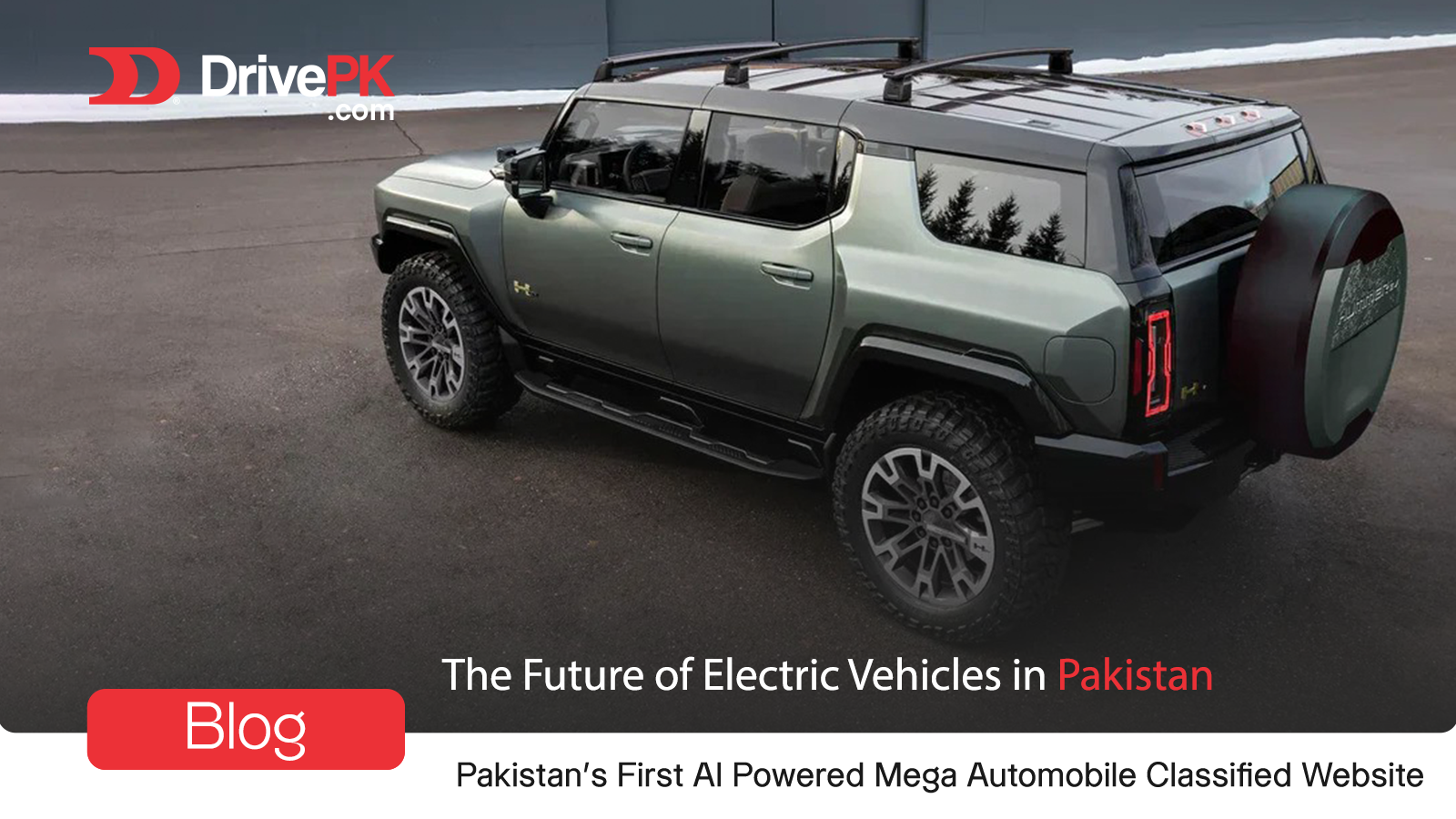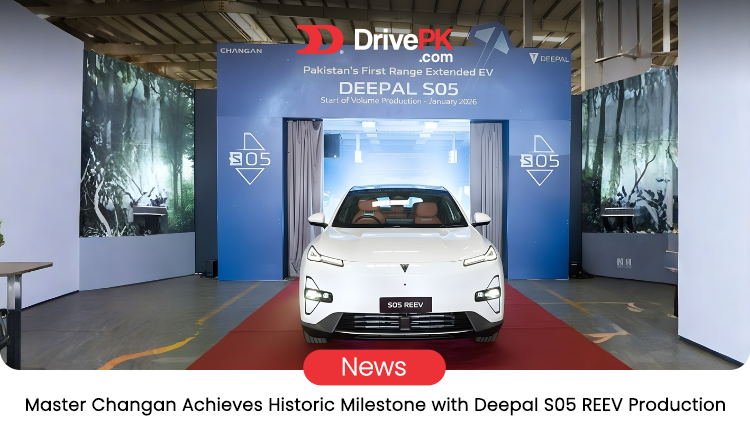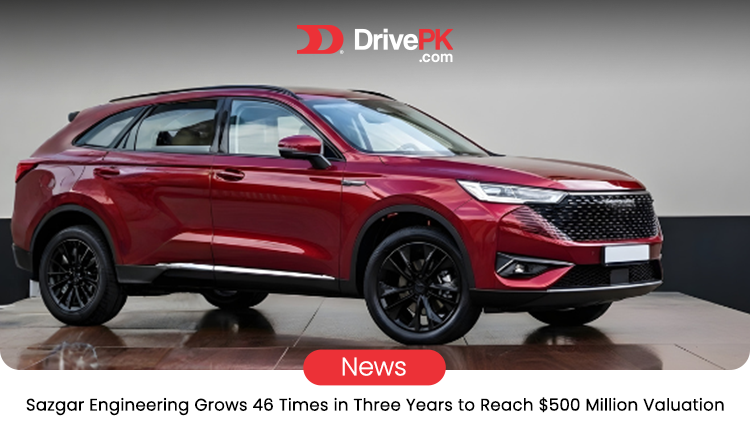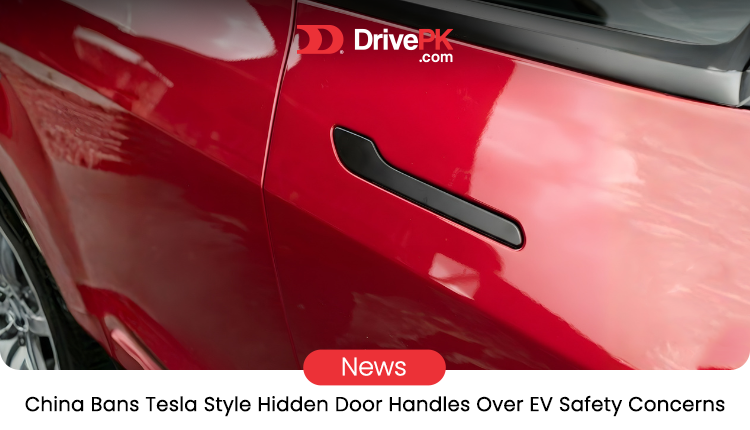The Future of Electric Vehicles in Pakistan: Prices, Challenges & their Solutions
Electric vehicles are reshaping Pakistan’s auto market with rising demand, new brands, and cleaner mobility. Explore prices, challenges, and how DrivePK leads the EV revolution.

Table of Contents
- Petrol Prices vs Electric Vehicles in Pakistan: A Common Family Argument
- Mouth words regarding to Electric Vehicle in Pakistan
- Why Electric Vehicles in Pakistan Matter: Cost, Clean Air, and Future Growth”
- Electric Vehicle Companies in Pakistan: Key Brands Entering the Market
- Money part, though. That’s the stopper.
- Brands and which Uplift their Electric vehicle in Pakistan
- Luxury EVs? BMW iX/i4/i7 are dream machines. Pricey dreams.
- Electric Charging Station and their Locations
- So what’s the fix that doesn’t sound like a speech?
- Why EV prices are so… you know
- How Pakistan Can Fix EV Challenges: From Price to Charging Stations
- Charge the country, smartly
- Fix policy where it matters.
- Let banks play ball.
- Service comes first.
- Educate without being boring.
- Electric Vehicle in Pakistan or a Hybrid? Why Many Families Still Choose Used Cars
- EVs will win where the math is strong:
- Electric Vehicle Charging Stations in Pakistan: City-by-City Outlook
- What about the grid?
- Prices: how do we make them friendlier?
- A fair word on fears
- Who should switch right now?
- Where the Pakistan automobile industry fits in
- Drive PK: AI-Powered Platform Transforming the Automobile Industry in Pakistan
- Conclusion
- Frequently Asked Questions
- What’s the electric vehicle price in Pakistan right now?
- Best electric vehicle in Pakistan?
- Are there electric charging stations in Pakistan?
- EV under 10 lakhs in Pakistan?
It's surprising facts and figures in the auto industry in Pakistan, that sales of electric vehicles have increased to 64% from the previous year. Government policies have been fully dedicated to and emphasizing the adoption of electric vehicles in Pakistan, which seems helpful in reducing inflation and global warming issues.
There are 57800 EV motorbikes sold out in the first eight months of 2025, which shows the huge public interest.
Another brightening indication is that 46 new franchises of credible companies opened between 2023 to 2025. These companies further expand their service networks, assemblers, importers, and they are planning with local companies like BYD United Motors, etc.
In this blog, we will dive deep into consumer behaviour and other challenges to adapt electric vehicles in Pakistan and their remedies as well.
Petrol Prices vs Electric Vehicles in Pakistan: A Common Family Argument
Meet Mohammad Ali, a simple man from a middle-class farming family. His life runs on two wheels and four, an old Yamaha motorcycle for daily milk deliveries to the city, and a trusty Suzuki Mehran that his younger brother Mohammad Athtar uses for picking and dropping school kids.
Yesterday, the two brothers had a heated debate over chai. The younger one, Athar Ali, argued that with petrol prices touching the sky, it’s time to sell the Mehran and Yamaha and switch to an electric vehicle.
The elder brother just puffed on his hukka, let out a big cloud of smoke, and laughed.
“EV? What EV? You mean a car that runs on bijli (electricity)?”
Athar nodded confidently. “Yes, electric vehicle. No petrol, just charging.”
Another round of laughter.
“Bhai, be serious. If we sell our Mehran and bike, do you think this EV will carry milk cans and school kids? And if it breaks down, will our Allah Deen (mechanic) fix it? You think he even knows what an EV battery looks like?”
The younger one tried again, but the elder brother wasn’t done.
“And charging? Do you even know the price of electricity units in Pakistan? How will this save us money?”
The debate ended the same way it began, with questions, confusion, and a lot of smoke from the hukka.
And that’s the bigger story of EVs in Pakistan too: everyone’s curious, but when it comes to real life, doubts and fears take over.
Mouth words regarding to Electric Vehicle in Pakistan
You can observe this type of debate everywhere, with the recent boom of electric vehicles in Pakistan. Look, everyone’s tired. Tired of watching petrol jump every few weeks. Tired of planning a family visit and then thinking, “Yaar, is it worth the fuel?” When petrol costs around Rs. 268 per litre and diesel is not far behind, driving starts to feel like a luxury, not a necessity. That’s why people keep asking the same question: Are electric cars in Pakistan finally the way to go?
Why Electric Vehicles in Pakistan Matter: Cost, Clean Air, and Future Growth”
A well-set EV can cost maybe Rs. 6 to 8 per km on home charging. Petrol cars? Often four times that. Hybrids cut the pain a bit, but still. Also, the air we breathe isn’t great. If you’ve stood at a Signal in Lahore in winter, you know what I mean. EVs don’t fix everything, but tailpipe emissions? Gone.
Do we have enough EVs on the road today? Not really. Fewer than you’d expect for a country this big. But the noise is getting louder. New models, more talk of charging, banks flirting with EV loans… It’s moving, slowly.
I won’t pretend it’s simple. Prices are high. Charging is patchy. Local assembly is “inshallah soon.” But the door isn’t closed.
Electric Vehicle Companies in Pakistan: Key Brands Entering the Market
The auto scene here has lived on petrol and diesel for decades. Suzuki, Toyota, and Honda built those badges that built the streets. EVs? Still the new kid, half invited, half outside the gate. Most electric vehicles in Pakistan are imported through dealers. A few brands are trying to make it real MG with ZS EV and MG4, BYD aiming to enter properly, Changan teasing the Lumin, Kia bringing EV6/EV9 for the premium crowd, and United/Crown/Evee quietly pushing electric bikes and scooties.
Money part, though. That’s the stopper.
You can already see the gap. People search low low-priced electric cars in Pakistan, hoping for something under Rs. 15 lakhs. Doesn’t exist yet. If your budget is tight, you’re still looking at used cars under 10 lakhs in Pakistan, Mehran, Alto, Cultus, and calling it a day. That’s just how it is right now.
- MG ZS EV: ~1.2 to 1.4 crore
- BYD Atto 3: ~1.5 to 1.7 crore
- Changan Lumin (mini city EV): ~25 to 0 lakhs (when it lands properly)
- MG Comet EV: ~28 to 35 lakhs
- BMW iX / i4 / i7: 3 to 4 crore (yes, crore)
- United EV Bullet (bike): ~1.2 to 1.5 lakh
Anyway, here’s the thing that keeps EV talk alive: running cost. The math is cruel to petrol
- Petrol car: ~Rs. 25 to 30/km
- Hybrid car: ~Rs. 18 to 20/km
- Electric car (home charging): ~Rs. 6 to 8/km
So yes, EVs cost a lot up front. But if you drive a lot and can charge at home, you start saving quietly, every day. Which is the only kind of saving most of us can manage.
Brands and which Uplift their Electric vehicle in Pakistan
People want a straight answer: Which is the best electric vehicle in Pakistan right now? For a normal upper-middle-class buyer who can afford it and wants minimal drama, MG ZS EV is the safe pick because it’s here, serviced, and known. If BYD Atto 3 lands with proper support, that could shake things. For true budget talk, Changan Lumin looks like the city hero small, light, easy to park. But its real-world rollout needs to be clean: service, parts, warranty. Fancy brochures won’t cut it.
Luxury EVs? BMW iX/i4/i7 are dream machines. Pricey dreams.
Bikes and scooties? This is where things actually move. United EV Bullet, Crown EV scooty, Evee C1… this stuff hits real pockets. Low-price electric vehicles in Pakistan, if we’re honest, are two-wheelers for now, because they’re simple to charge and cheap to run.
Electric Charging Station and their Locations
If you’ve asked “electric vehicle charging station in Pakistan near me?” and got three pins in your whole city, you already know. Karachi has a handful. Lahore has a few more. Islamabad has some scattered options at malls and big fuel stations. Smaller cities? Hmm. Not much yet.
No charging, no confidence. It’s that simple. And yes, home charging helps, but not everyone has a private driveway or stable power. Also, summer grid stress is a thing. We all know that feeling when the fan stops.
So what’s the fix that doesn’t sound like a speech?
- Put AC and DC chargers at fuel stations on major corridors.
- Push apartment chargers with either shared meters or a smart billing system.
- Encourage solar-plus-charger at offices and schools. Daytime charging, less grid pain.
- Be honest about tariffs. People need predictable bills or they won’t switch.
- If the map fills in, the fear drops. It always works like that.
Why EV prices are so… you know
A lot of the cost is baked into being an import market. Freight, duties, GST, dealer overheads. Even with policy breaks on EV parts, the landed price is still heavy. And because local assembly hasn’t kicked in properly, no one can shave those lakhs off in a serious way. It’ll change when a big player sets up a line and commits to volumes. No volumes, no real price cuts.
Also, resale. Pakistan is a resale country. If buyers feel they can’t sell later, they won’t buy now. Simple. That’s why certified used programs and battery warranties (8 years is the sweet spot) matter so much.
How Pakistan Can Fix EV Challenges: From Price to Charging Stations
Charge the country, smartly
Fuel companies already have prime real estate. Give them a push to install fast chargers. Let DISCOs and private players co-invest. Add a clear, fair tariff slab for EV charging so no one gets surprise bills.
Fix policy where it matters.
If you really want EVs to move, make entry-level EVs affordable. Duty relief for small city EVs (under a sensible battery size), quick customs windows, and reduced registration costs. Not speeches, apers signed.
Let banks play ball.
Auto loans are big in Pakistan, but EVs are still awkward for some lenders. Introduce EV-specific loans with a little markup relief. Add Islamic financing options. For two-wheelers, EMI under Rs. 7–9k/month would flip a lot of delivery riders fast.
Service comes first.
No one wants a car that sits because a small part isn’t in stock. Brands should open authorized EV service points in every major city, carry common parts, and run mobile support vans. Also, train local mechanics. A short EV basics course can do wonders.
Educate without being boring.
Teach simple things: how to charge, how not to cook a battery, why tyre pressure matters for range, and how to store during long trips. Short videos. Urdu/Roman Urdu captions. TikTok, Insta, YouTube. Not just PDFs.
Electric Vehicle in Pakistan or a Hybrid? Why Many Families Still Choose Used Cars
Let’s not be snobby. A lot of families will keep buying used cars under 10 lakhs in Pakistan because that’s what they can afford. Mehran, Alto, Cultus,these cars keep the country moving. Hybrids are a smart bridge: less fuel, no charging panic, easier resale.
EVs will win where the math is strong:
- Daily commute 30 to 60 km.
- Secure home or office charging.
- Fuel cost pain is already high.
- You plan to keep the car 4 to 6 years.
If that’s you, EVs start making sense. If not, a hybrid or a good used car may be the smarter move right now. No shame in that.
Electric Vehicle Charging Stations in Pakistan: City-by-City Outlook
The following the key Charging Stations Pakistan
Karachi: Long distances, humid heat, and a lot of apartment living. Public fast chargers near Clifton, PECHS, DHA, Shahrah-e-Faisal clusters would change the mood quickly. Also, solar-plus-day charging at offices? Big win.
Lahore: Smog season is brutal. EV buses and city EVs can help school runs and office commutes if charging pops up along Canal, Gulberg, DHA, Johar Town. People here care about air when it gets bad. Use that.
Islamabad/Rawalpindi: Slightly shorter commutes for many. More bungalows = easier home charging. If any city can adopt early, it’s probably here.
Secondary cities: Start with two-wheelers and fleet vehicles (delivery, ride-hail). Then slowly add compact city EVs with shared public chargers at markets and district HQs.
What about the grid?
Fair question? If everyone plugs in at 8 pm, we’ll feel it. The trick is timing and solar:
- Daytime charging at offices and malls powered by rooftop solar reduces stress.
- Smart charging at home that runs after midnight or during off-peak.
- Battery swapping for bikes might make sense in dense areas. Quick, predictable, and cheap.
- This isn’t magic. It’s scheduling and common sense.
Prices: how do we make them friendlier?
Short term:
- Duty relief for small city EVs and two-wheelers.
- Zero registration fee for the first few years (bring the on-road shock down).
- Cheaper financing.
- Insurance products that understand EV parts and battery coverage.
Medium term:
- CKD assembly for a few high-volume models.
- Local sourcing of non-battery parts (seats, plastics, trims).
- Corporate fleets to buy in bulk and create a used EV pipeline later (that’s how resale stabilizes).
Long term:
- If battery plants come to the region, then real price drops happen. That’s a bigger game.
- Small stuff that actually matters
- Tyre pressure boosts range more than most people think.
- Cabin pre-cooling while plugged in saves battery on hot days.
- Speed control on ring roads to EVs sip power at steady speeds, gulp when you floor it.
- Public charger etiquette: don’t hog a charger at 95%. Unplug, move, be nice.
A fair word on fears
“Battery dead in five years?” Not usually. Most EVs keep 70 to 80% capacity after many years if treated well. Heat is the enemy, though, so parking in shade and smart charging help. “Resale?” It’s thin now, yes. As volumes grow and certified programs start, this improves. “What if I run out of charge?” Same as fuel, plan a little. Keep a buffer. You’ll be fine.
Who should switch right now?
- Daily commuters with easy home or office charging.
- Government and corporate fleets (discipline plus parking equals easy adoption).
- Delivery bikes and couriers,savings hit the pocket fast.
- Families in Islamabad/Rawalpindi with short city use and parking space.
If that’s you, EV life is not scary. If you live in a dense apartment area with no charger in sight and long highway trips every week… hold for a bit. Or go hybrid.
Where the Pakistan automobile industry fits in
If we get EVs right, we’re not just saving fuel money. We’re building jobs, assembly, wiring harnesses, plastics, seats, after-sales, charging installers, software for smart billing. We also clean up city air and move closer to tech that the world is already using. It’s not about being trendy. It’s about catching up and then holding our own.
Targets like “30% EV sales by 2030” sound big. Realistically, 10 to 15% would still be a big shift for us if policy, pricing, and charging get handled like a real plan, not a press conference.
Drive PK: AI-Powered Platform Transforming the Automobile Industry in Pakistan
Drive PK is fully dedicated to transforming the automobile industry in Pakistan with the power of AI. The platform isn’t just about buying and selling cars; it’s designed to make the entire journey easier and safer for customers.
From verified car ads to AI-powered smart search that matches vehicles with your exact needs, Drive PK takes away the guesswork. It also offers 24-hour inspection with a refund promise, support for electric vehicles in Pakistan, and even space for accessories, EV chargers, and bike listings. For anyone tired of scams, hidden costs, or endless scrolling, Drive PK is a one-stop trusted solution built for Pakistan’s drivers.
Conclusion
EVs will win here when prices drop, chargers show up everywhere, and service feels normal. Till then, many folks will stick to used petrol cars, some will pick hybrids, and a lot of riders will go electric on two wheels first.
If you can charge easily and your daily drive is steady, an EV makes sense today. If not, keep watching. The revolutionary process coming slowly.
Frequently Asked Questions
What’s the electric vehicle price in Pakistan right now?
City EVs from ~25 to 35 lakhs, crossovers like ZS EV from 1.2 to1.4 crore, premium stuff 3+ crore. Bikes around 1.2 to 2 lakhs.
Best electric vehicle in Pakistan?
For most buyers who can afford it today, the MG ZS EV. If BYD Atto 3 launches strongly, the rankings can change. For budget city driving, Changan Lumin could be the quiet hero once support is clear.
Are there electric charging stations in Pakistan?
Yes, but thin. Karachi/Lahore/Islamabad have a handful each. It’s improving slowly. Home or office charging is still the main play.
EV under 10 lakhs in Pakistan?
Not a car. Only bikes/scooties. For cars in that range, you’re still in the petrol used market.
.
Tags
Share this article
About the Author
Najeeb Khan
Automotive enthusiast and writer
Comments (0)
Login Required
You need to be logged in to comment on this article.
No comments yet. Be the first to share your thoughts!
Related Articles

Deepal S05 REEV: Pakistan's First Locally Assembled Electric SUV Hits Production
Master Changan Motors has started full production of the Deepal S05 REEV, Pakistan's first premium range-extended electric SUV. Built in Karachi, it offers over 1,000km range and advanced features, marking a big leap for local EV manufacturing.

Sazgar Engineering Market Cap Hits $500 Million: 46x Growth in 3 Years
Sazgar Engineering Works Limited has grown from a $10.8 million company in February 2023 to $504.7 million market cap by February 2026 – a 46x increase. The jump came from its partnership with Great Wall Motors, successful launches of Haval SUVs, and the premium Tank 500 hybrid. Demand is strong, and the brand is now nationwide.

China Bans Hidden Door Handles on EVs: Safety Rules Starting 2027
China has banned Tesla-style hidden door handles on electric vehicles over safety fears. From January 2027, all EVs must have mechanical door releases inside and out. This follows deadly crashes where doors wouldn't open during emergencies, like in Xiaomi EV incidents.